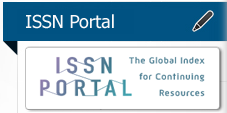Pengaruh Perubahan Iklim terhadap Siklus Kejadian Siklon Tropis di Pasifik Selatan dan Utara
Abstract
ABSTRAK
Badai siklon tropis merupakan salah satu bencana alam berbahaya yang memengaruhi kehidupan, harta benda dan lingkungan. Meskipun Indonesia bukan merupakan daerah lintasan siklon tropis, namun keberadaan siklon tropis di sekitar wilayah Indonesia akan memengaruhi pembentukan pola cuaca di Indonesia. Penelitian ini bertujuan mengidentifikasi pengaruh perubahan iklim sebelum dan sesudah tahun 1950 terhadap siklus kejadian siklon tropis dan membandingkan perubahan siklus kejadian siklon tropis yang terjadi di wilayah Pasifik Selatan dan Pasifik Utara. Sebanyak 2.709 data siklus hidup siklon tropis dianalisis dengan menggunakan analisis survival model regresi Cox Proportional Hazard (Cox PH) dan Kaplan Meier. Hasil penelitian menunjukkan bahwa perubahan iklim berpengaruh signifikan terhadap kejadian siklon tropis. Kejadian siklon tropis sesudah terjadinya perubahan iklim tahun 1950 cenderung berlangsung lebih lama dibandingkan sebelum perubahan iklim tahun 1950 (hazard rasio 1,489). Lebih rinci, siklon tropis yang terjadi di wilayah Pasifik Selatan sesudah adanya perubahan iklim tahun 1950 juga berlangsung lebih lama (hazard rasio 1,463) dan memiliki kecepatan pergerakan yang lebih besar (hazard rasio 1,052) jika dibandingan dengan siklon tropis yang terjadi sebelum tahun 1950 di wilayah tersebut. Selain itu, analisis deskriptif juga menunjukkan adanya peningkatan intensitas, durasi waktu, kecepatan dan jarak tempuh siklon tropis yang terjadi sesudah tahun 1950.
Kata kunci: Cox proportional hazard, pasifik selatan dan utara, perubahan iklim, siklon tropis.
ABSTRACT
Tropical cyclone (TC) is one of the most dangerous natural disasters that affect life, property and the environment. Although Indonesia is not a TC track, but the presence of TCs in the vicinity of Indonesia will affect the formation of weather patterns in Indonesia. This study aims to identify the effects of climate change before and after 1950 on the cycle of TC events and to compare changes in the cyclone of TCs that occur in the South and North Pacific regions. A total of 2,709 life cycle data for TCs were analyzed using the survival analysis regression model Cox Proportional Hazard (Cox PH) and Kaplan Meier. The results showed that climate change had a significant effect on the event of TCs. The occurrence of TCs after climate change in 1950 tends to last longer than before the climate change in 1950 (hazard ratio 1.489). In more detail, TCs that occurred in the South Pacific region after the climate change in 1950 also lasted longer (hazard ratio 1.463) and has a greater speed of movement (hazard ratio1.052) when compared to TCs that occurred before 1950 in the region. In addition, descriptive analysis also shows an increase in the intensity, duration, speed and distance traveled by TCs that occurred after 1950.
Keywords: Cox proportional hazard, south and north pacific, climate change, tropical cyclone.
Keywords
Full Text:
PDFDOI: http://dx.doi.org/10.34126/jlbg.v15i2.431
Refbacks
- There are currently no refbacks.

This work is licensed under a Creative Commons Attribution-NonCommercial 4.0 International License.









